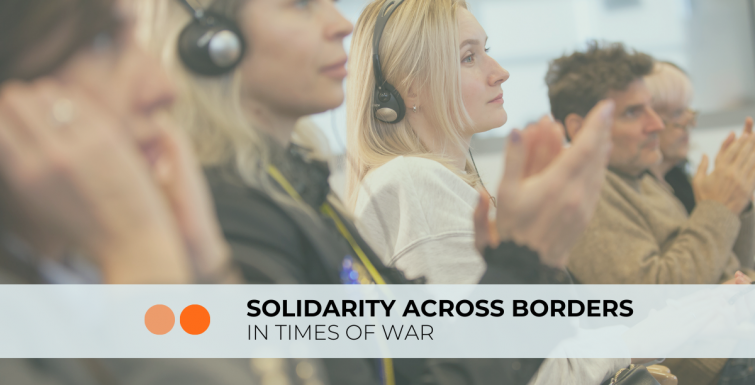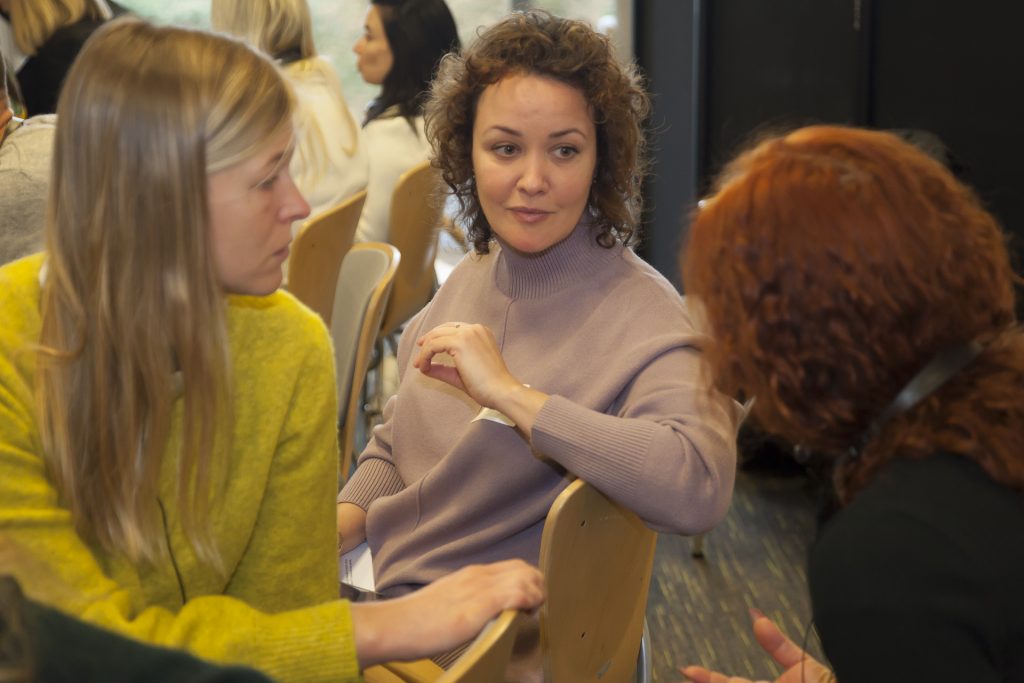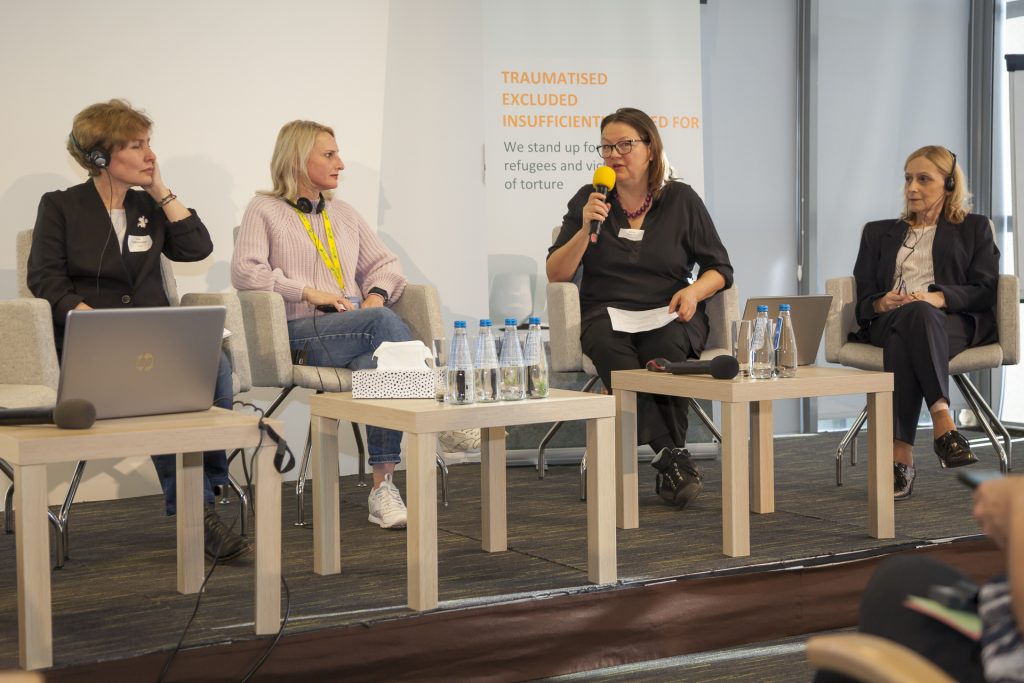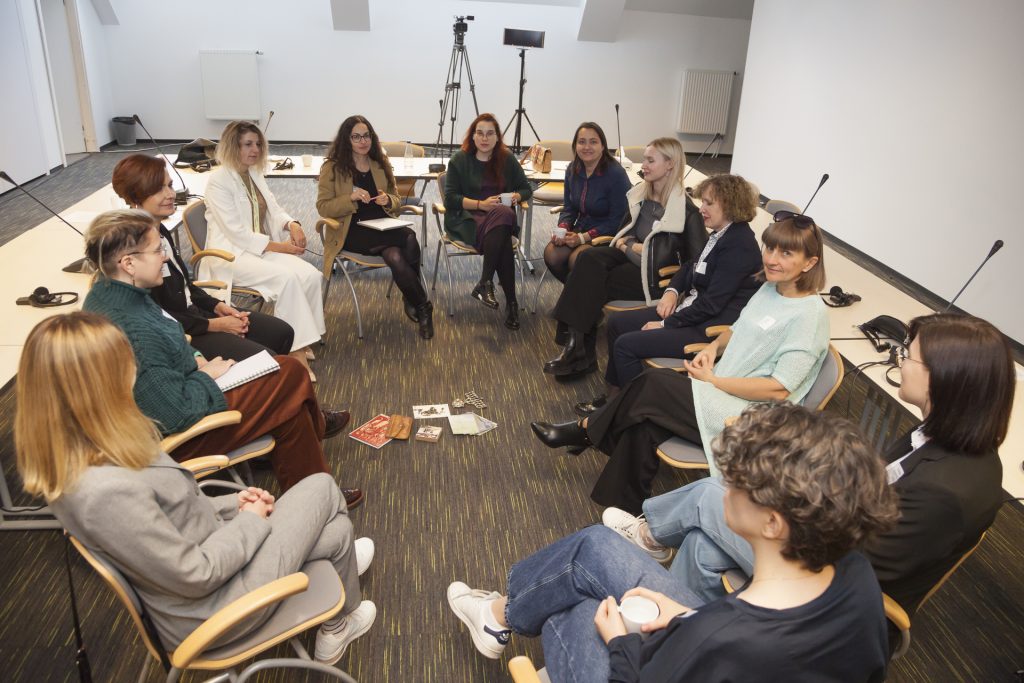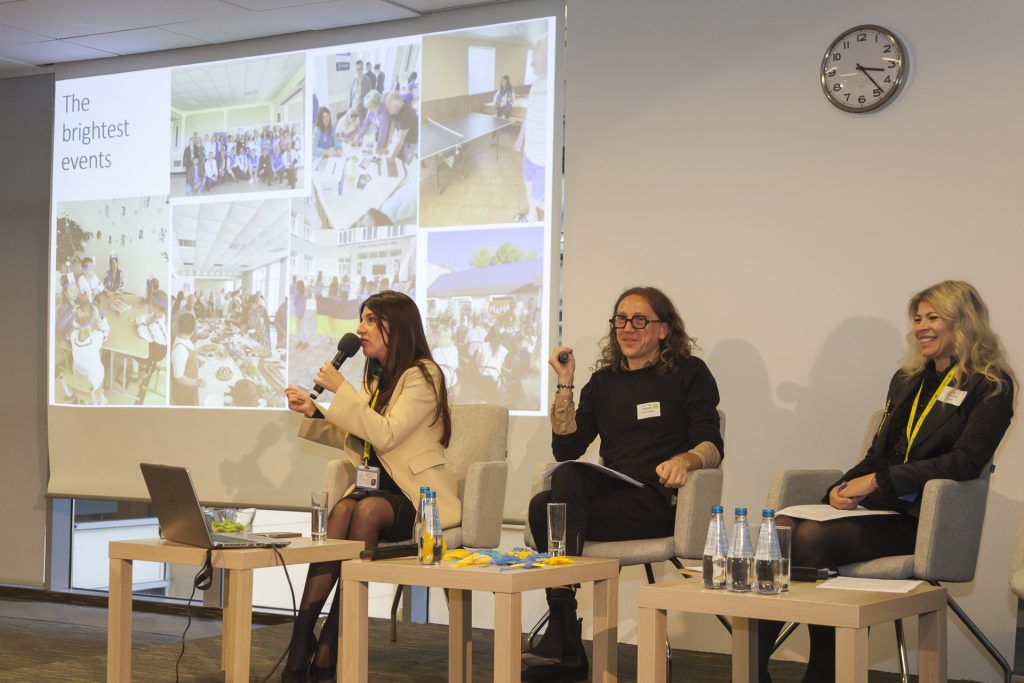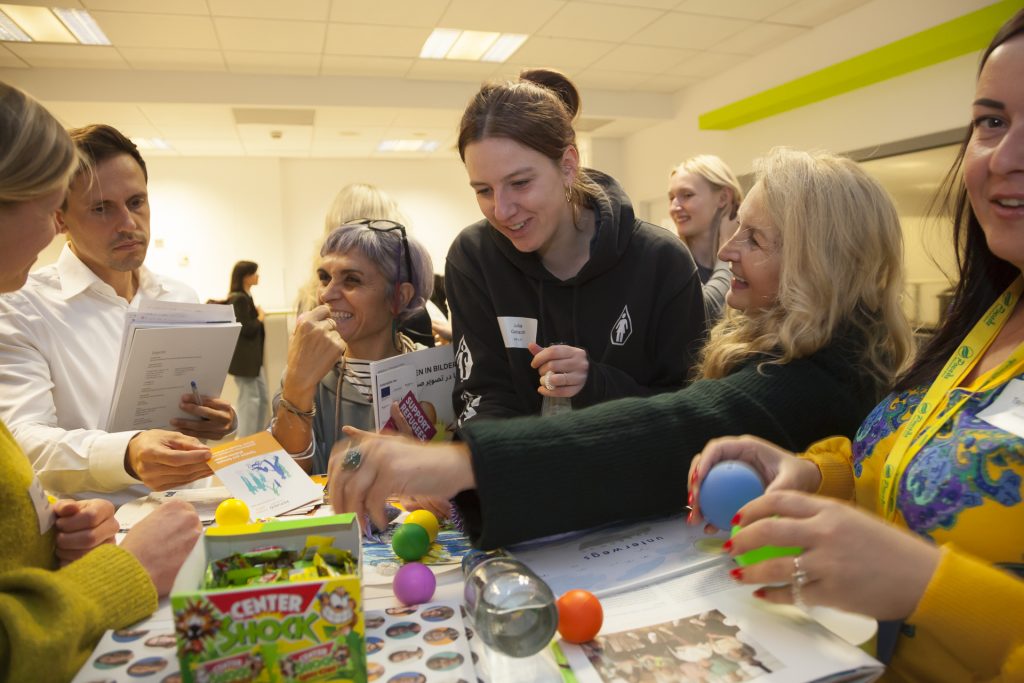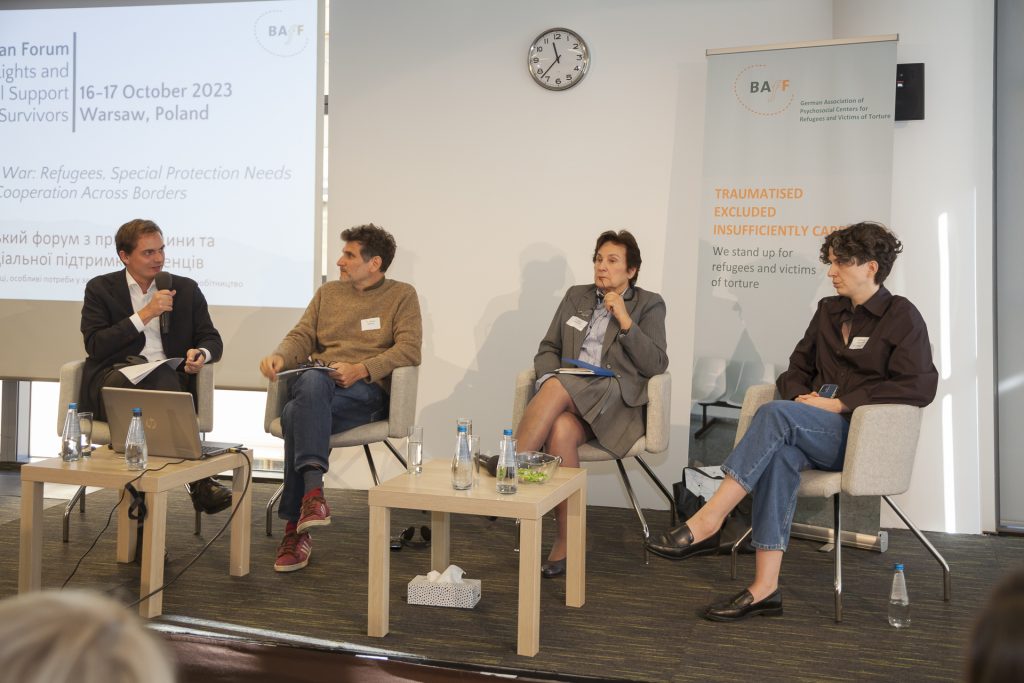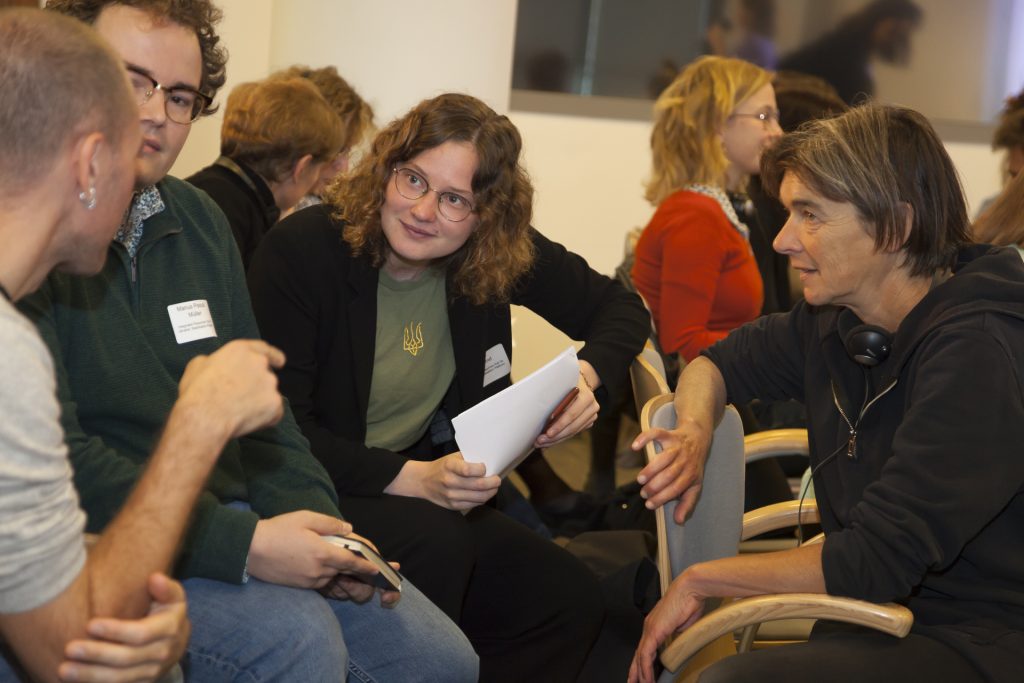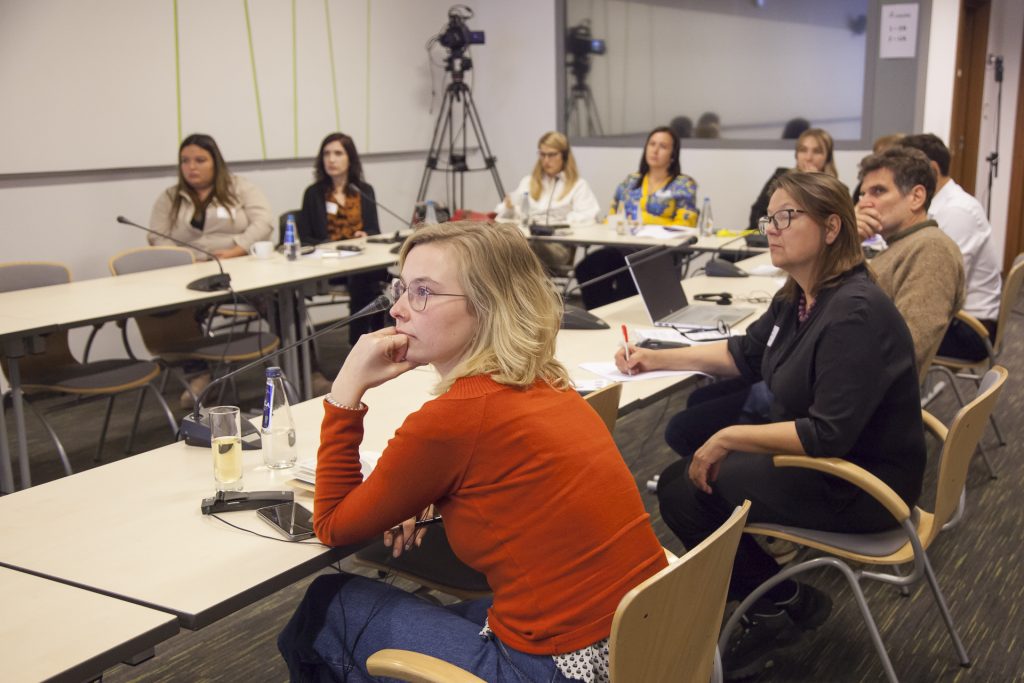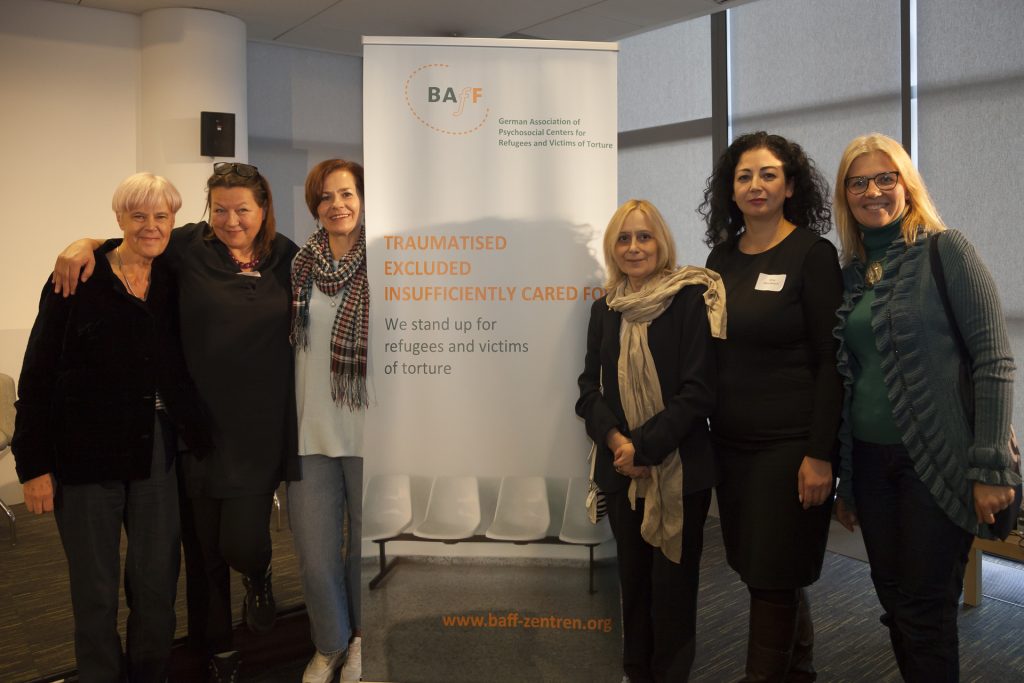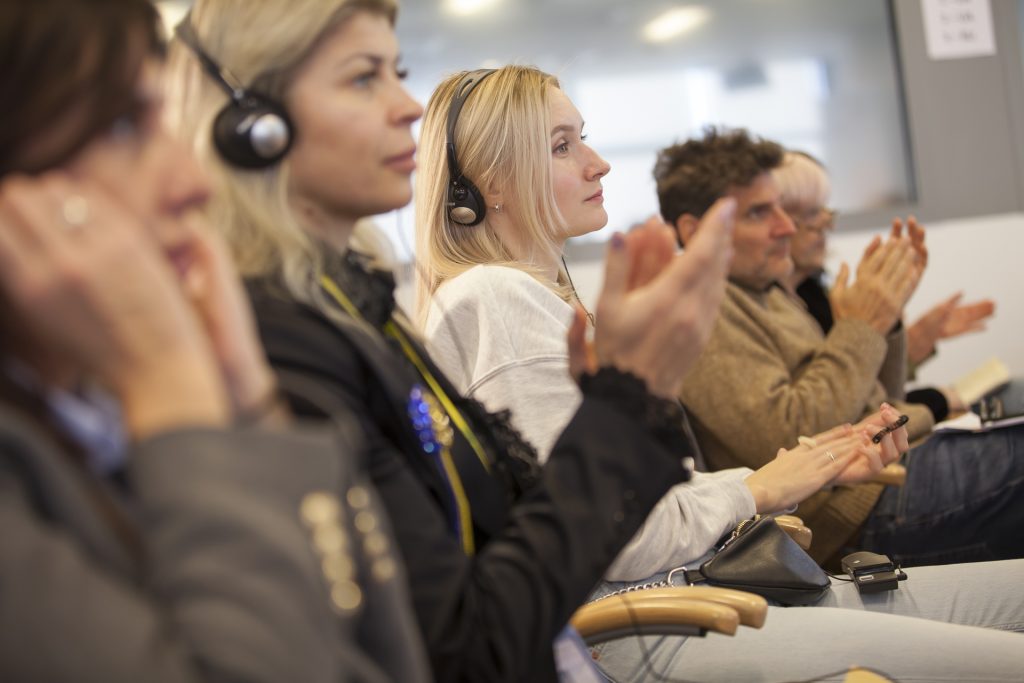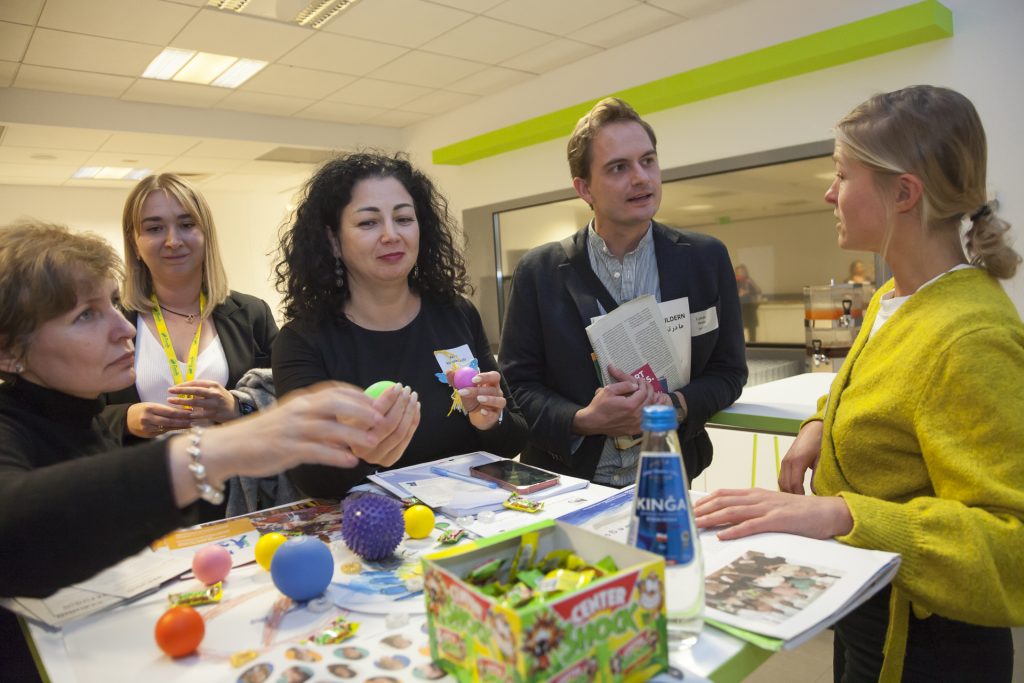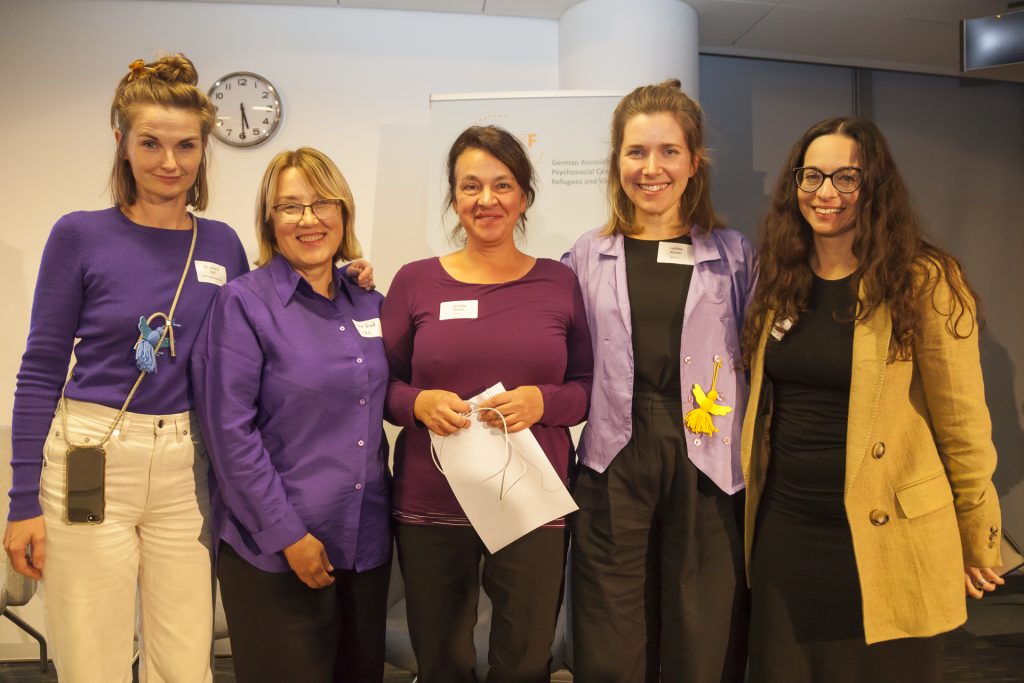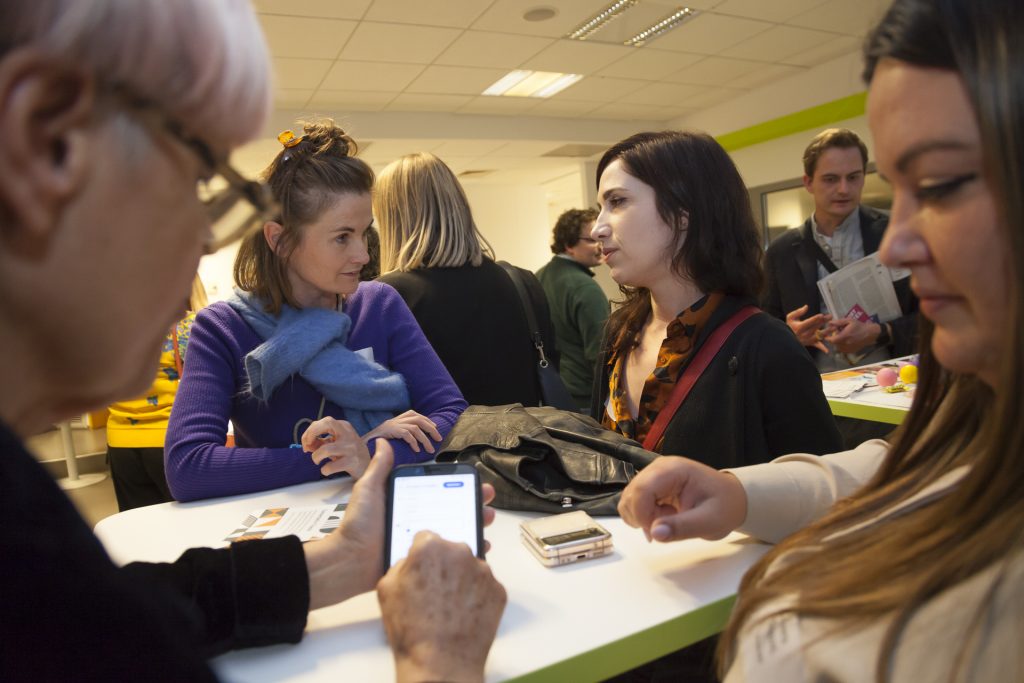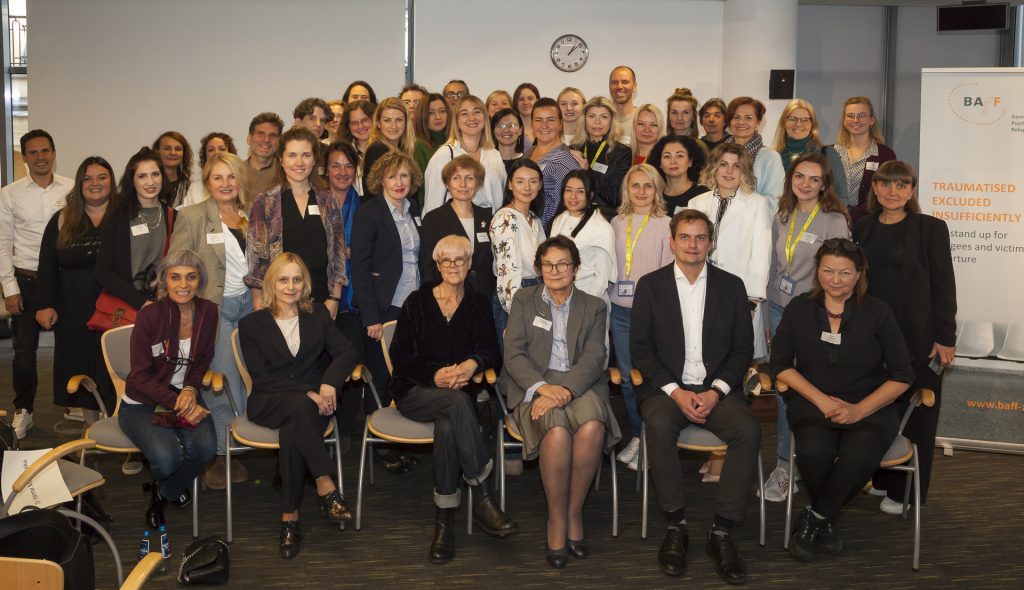BAfF European Forum on Human Rights and Psychosocial Support for Refugee Survivors in Warsaw | 16th to 17th October 2023
The two-day European Forum took place under the title “Ukraine in Times of War: Refugees, Special Protection Needs and Cooperation Across Borders” and brought together 60 participants from ten European countries (Ukraine, Georgia, Poland, Italy, Germany, Romania, Israel, Serbia, Belarus and the Netherlands) in Warsaw, Poland. It was organised by BAfF in close cooperation with our Ukrainian partner ROKADA Charitable Foundation.
The first day started under the impression of temporal landmarks: 600 days after the start of the full-scale invasion in Ukraine, ten days after the terror attack of the Hamas in Israel and one day after the elections in Poland.
These landmarks referred to only some of the enormous challenges that psychosocial support actors and refugees encounter in Europe: the Russian war against Ukraine, shrinking spaces for civil society actors, social polarisation, and discriminatory policies against refugees on the side of the EU and its member states. The forum aimed at standing behind refugee survivors of torture, war, and persecution, and at strengthening human rights defenders and civil society actors supporting refugees in need of special protection.
How can we continue our work? Where do we have to respond? How can we provide adequate support for refugees in and from Ukraine?
These questions were the focus of intense discussions. A combination of keynotes, discussions, and interactive workshops created spaces for transnational networking, mutual support and knowledge exchange.
Eventually, this European Forum shaped an empowering space where we were able to learn about the challenges and best practices of each other, to listen and support each other. In the following, we want to highlight a few insights gained:
1. Transnational solidarity is experienced as strengthening and enriching
- Transnational networking between health professionals is essential to formulate a collective identity beyond the increasing populism in Europe.
- Expressing appreciation for and acknowledging the important work of colleagues abroad is experienced as empowering. A first step is to find out how to support one another while also managing one’s own resources.
- Practitioners have to examine which of their own learnings can be transferred to other regions, wars, conflicts. A first step is to share data and experiences in our support work.
2. There is a need for carefully moderated spaces for the transnational exchange of knowledge, which also allow practitioners to address their own vulnerabilities and burdens
- The success and sustainability of psychosocial support (as a human rights profession) relies to a major extent on the humans that provide this work. Practitioners themselves are an important part of the equation and need safe(r) spaces to share the impact of their own vulnerabilities and limited resources. Professionalism does embrace vulnerability.
“I have worked in the NGO sector for 15 years and get invited to international conferences regularly, but this was a very special and unique format. It allowed space not only for professional exchange and networking, but also for bringing our own vulnerabilities as practitioners in very challenging contexts into the exchange.”
Ukrainian participant
- Psychosocial support work in times of war demands a clear positioning of the practitioner and therapist towards injustice. This can be conveyed by action and by language. Ukrainian colleagues emphasised that this starts by calling the context of Ukraine a “war” and not “conflict” or “situation”.
- Clients who experienced extreme collective violence and war seek understanding from support actors and therapists, at the same time they mistrust their ability to fully understand what they are going through. During the Forum it became clear that not only practitioners in host countries are faced with disbelief, but also those working in West and Central Ukraine with Internally displaced people (IDPs) from Eastern Ukraine. These nuances matter in perception and relationship building – and cannot be detached from own vulnerabilities, burdens, or privileges that the practitioner holds.
3. Understanding and dealing with vulnerabilities and protection needs vary between host, transit and war contexts: Knowledge exchange opens up potential for cooperation and improved coordination in support services.
- Practitioners need more spaces where practitioners can elaborate on their own as well as common understandings of vulnerabilities and special protection needs of refugee survivors: Having a differentiated understanding of vulnerabilities yet speak with one voice vis-a-vis (international) political decision makers is crucial for a strong human rights-oriented lobby.
- Addressing vulnerabilities of war-affected people faces similar challenges for psychosocial support actors within Ukraine as well as European host countries, amongst others:
- How do we reach vulnerable groups with relevant information and offers for support?
- How can we create trust and acceptance for the support service and overcome stereotypical views of psychosocial and therapeutic professions, especially for groups facing multiple discriminations such as the Roma community?
- Ukrainian refugees constitute a special case in relation to other war contexts due to the ability of certain people to move relatively freely between host countries and Ukraine. This impacts the psychosocial support work when it comes to rebuilding family systems (when families are separated in different countries but also regions within Ukraine) or when affected people come back from exile with distinct psychosocial needs.
- Even in exile, refugees from Ukraine do not escape the war in their heads: It constantly impacts them through media reports on their smartphones and online communication. Disinformation can increase individual suffering even when physically not under threat at that moment.
- Best practices are always based on holistic approaches: As the uncertainty and lack of safety due to the ongoing war is a dominant factor, IDPs within Ukraine as well as refugees in host countries benefit most from support when their short-term needs are met by enhancing agency and stabilisation.
- Finally, the topic of evidence-based knowledge production was a cross-cutting issue for all practitioners: Who do we reach? Who are considered the “most vulnerable”? Are we as support actors and institutions accessible enough?
“When speaking about how to address vulnerabilities amongst people affected by war and injustice, we should not exclude our own vulnerability. There needs to be a space to be weak, cry or grief, otherwise no healing is possible. Sometimes it is important to put our beliefs of professionalism aside and to cry together with the clients.”
Ukrainian participant
Overall, there is a strong need to build robust networks and professional structures. In some countries, support actors could rely on existing contacts, facilities, coordinating entities, and bureaucratic guidelines more than in others. In Ukraine, ROKADA Charitable Foundation created a highly professional and growing psychosocial support network.
We thank everyone for their active participation – especially the panellists and moderators that shaped the programme of the Forum – and every participant for the inspiring exchange and the attitude of mutual support. We look forward to the follow-up!


